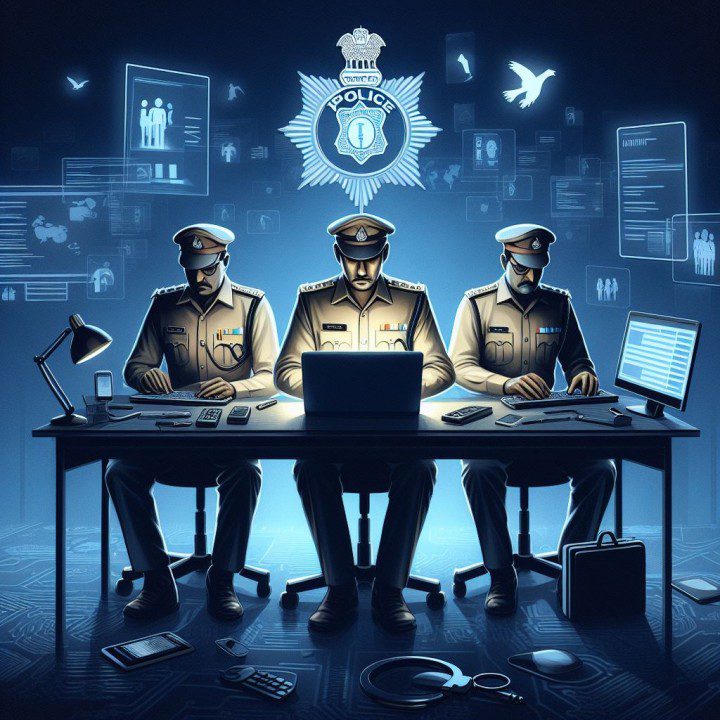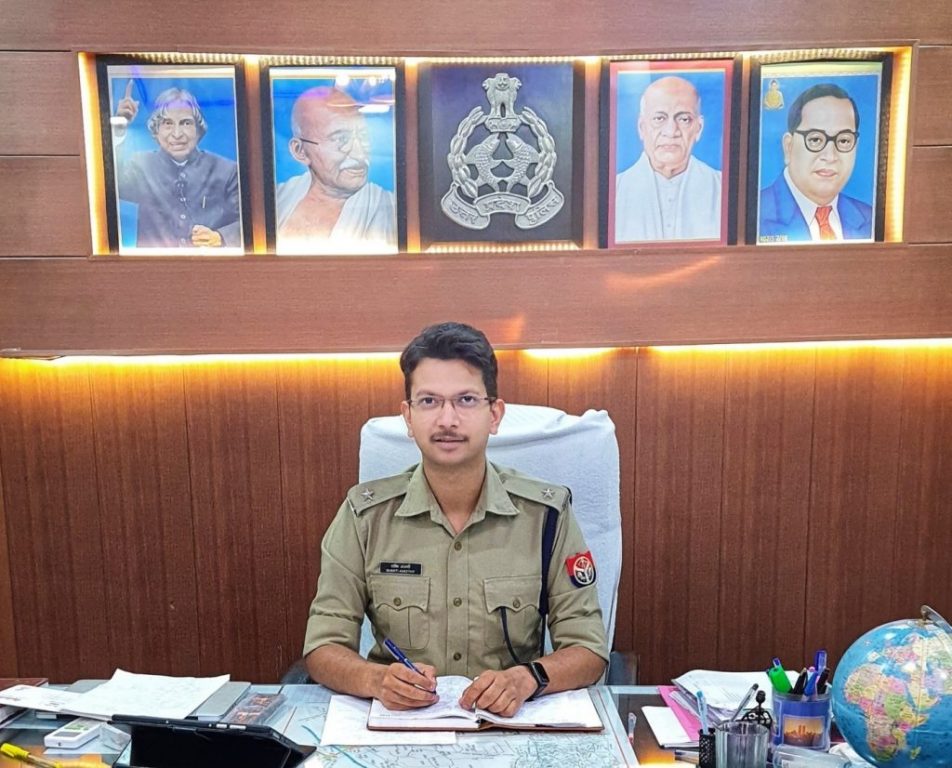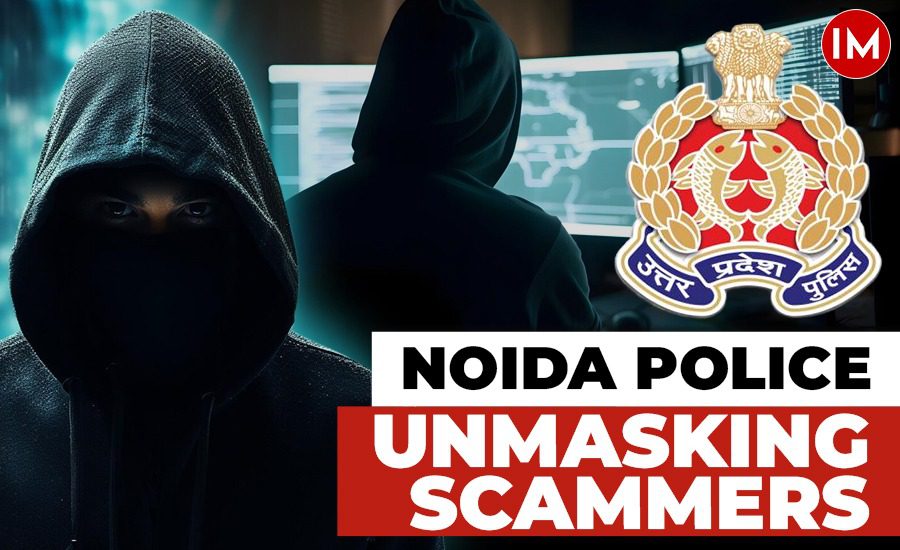In the ever-evolving world of technology, cybercrime has become an insidious threat that lurks behind the screens of our everyday devices. As scams become more sophisticated, they leave a trail of unsuspecting victims in their wake. Fortunately, in Noida, IPS Shakti Mohan Avasthi, Additional Deputy Commissioner of Police (DCP) Crime Cell, and IPS Vivek Ranjan Rai, Additional Commissioner of Police (ACP) Cyber Crime, are leading the charge against these cybercriminals. Their relentless efforts to protect the citizens from the digital menace have garnered attention and admiration across the region.
In an exclusive conversation with Indian Masterminds, they talked about how to protect oneself from the latest ‘Digital Arrest’ scams.
A JOURNALIST’S ORDEAL: DIGITAL CUSTODY OVER SKYPE
It all began with a seemingly innocuous call. An unknown number flashed on the journalist’s mobile screen, followed by a pre-recorded message read by a stern male voice. The message was cryptic, yet intimidating: dial ‘9’ to ensure continued reception of incoming calls. As the message looped, curiosity got the better of the journalist, and he pressed ‘9’. What followed was a descent into a chilling digital nightmare.
The call was automatically transferred, and a live male voice began speaking, “Why have you called the telecom authority?” The journalist caught off guard, asked if he meant the Telecom Regulatory Authority of India (TRAI). The response was a demand that he report to the cybercrime cell of Mumbai in Colaba within the next two hours. The problem was, he was in Delhi.
The caller, who claimed to be a CBI officer, invoked the Prevention of Money Laundering Act (PMLA) and threatened the journalist with a 45-day arrest. During this period, he warned, there would be no access to legal aid, family, or friends. The journalist’s mind raced as he considered the ramifications of such an accusation.

THE HARROWING EXPERIENCE OF DIGITAL ARREST
As fear took hold, the so-called CBI officer offered an alternative: a ‘Digital Arrest’. The journalist was instructed to read a text addressed to the Court into his camera, which would be sent in an audio-video format to a Judge.
Thus began his 28-hour digital captivity, where he was watched through the lens of his device. Eating, drinking, and even using the washroom required permission from the ‘officers’. His every move was scrutinized, and sleep was allowed only under their watchful eyes.
When the criminals demanded he transfer his funds to another account, doubt crept into the journalist’s mind. Was this a scam? He discreetly contacted his family, who, staying out of the camera’s view, helped him realize the horrifying truth. There is no such thing as ‘digital arrest’. It was a scam, and he was moments away from losing everything.
THE SCOURGE OF CYBER CRIME: LIVES SHATTERED
While the journalist narrowly escaped the clutches of these cybercriminals, others have not been as fortunate. A heartbreaking incident involved an elderly lady in the capital who lost 83 lakh rupees in a similar scam, falling victim to the sinister concept of ‘digital arrest’.
Dr. Pooja Goyal, a respected gynecologist in Noida, was held under ‘digital arrest’ for two harrowing days. Convinced by scammers posing as telecom officials, she transferred Rs 59.54 lakh to their accounts. A fortnight later, another doctor, Dr. Aarti Surbhit, was defrauded of Rs 45 lakh by criminals impersonating Mumbai Crime Branch officers. Her ordeal lasted over seven hours, leaving her devastated.
The tech-savvy are not immune either. An IT engineer in Noida fell prey to the same ruse, losing Rs 3.75 lakh to individuals masquerading as police officers online.
IPS SHAKTI MOHAN AVASTHI: A RAY OF HOPE
In the midst of this digital chaos, IPS Shakti Mohan Avasthi stands as a ray of hope. As the DCP of the Crime Cell in Noida, he tirelessly works to prevent such scams from claiming more victims. His message is clear and urgent: “There is nothing like a digital arrest. If someone calls saying that, they are scammers.”
Mr. Avasthi emphasizes the importance of reporting such incidents immediately. The helpline number 1930 is a lifeline for those targeted by cybercriminals, providing a platform for swift action and assistance.
Under his leadership, the Noida police have launched an extensive awareness campaign. Educational institutions, colleges, media houses, and community centers have become the battlegrounds in this fight against cybercrime.
“Through workshops, seminars, and interactive sessions, people are being educated by us on the tactics used by these digital predators and how to safeguard themselves,” he told Indian Masterminds.

IPS VIVEK RANJAN RAI’S INSIGHTS
Mr. Rai talked about how a person should immediately call or message their family, friends, or anyone close, as soon as they doubt that they are on the verge of becoming a victim of cybercrime.
“In almost all kinds of crime, the accused gets a chance to make a phone call to someone known and inform them about their situation. If a ‘police official’ refrains you from speaking to anyone that you know and explain your ordeal, you are most probably getting trapped in a scam,” he told Indian Masterminds.
He also talked about the importance of a person being aware of important helpline numbers such as 1930 for reporting such cybercrimes.
Talking about the factors that lead to a person getting scammed, the officer shared, “These scammers usually pick and choose people from good educational and financial backgrounds, who earn well and most probably have a good amount of money in their bank accounts. They know such people are more prone to paying the sum since they already have it, and target them.”

A CALL TO VIGILANCE
The battle against cybercrime is far from over, but with IPS Shakti Mohan Avasthi and IPS Vivek Ranjan Rai at the helm, there is hope. Their dedication to protecting citizens and raising awareness serves as a reminder that in the digital age, vigilance is our strongest ally. As the digital landscape continues to evolve, so must our efforts to stay one step ahead of those who seek to exploit it.
In a world where anyone can be a target, knowledge, and awareness are the first lines of defense. Through the efforts of leaders like Mr. Avasthi and Mr. Rai, the citizens of Noida are becoming more informed and empowered, ready to stand against the cybercrime wave that threatens to engulf them.
































